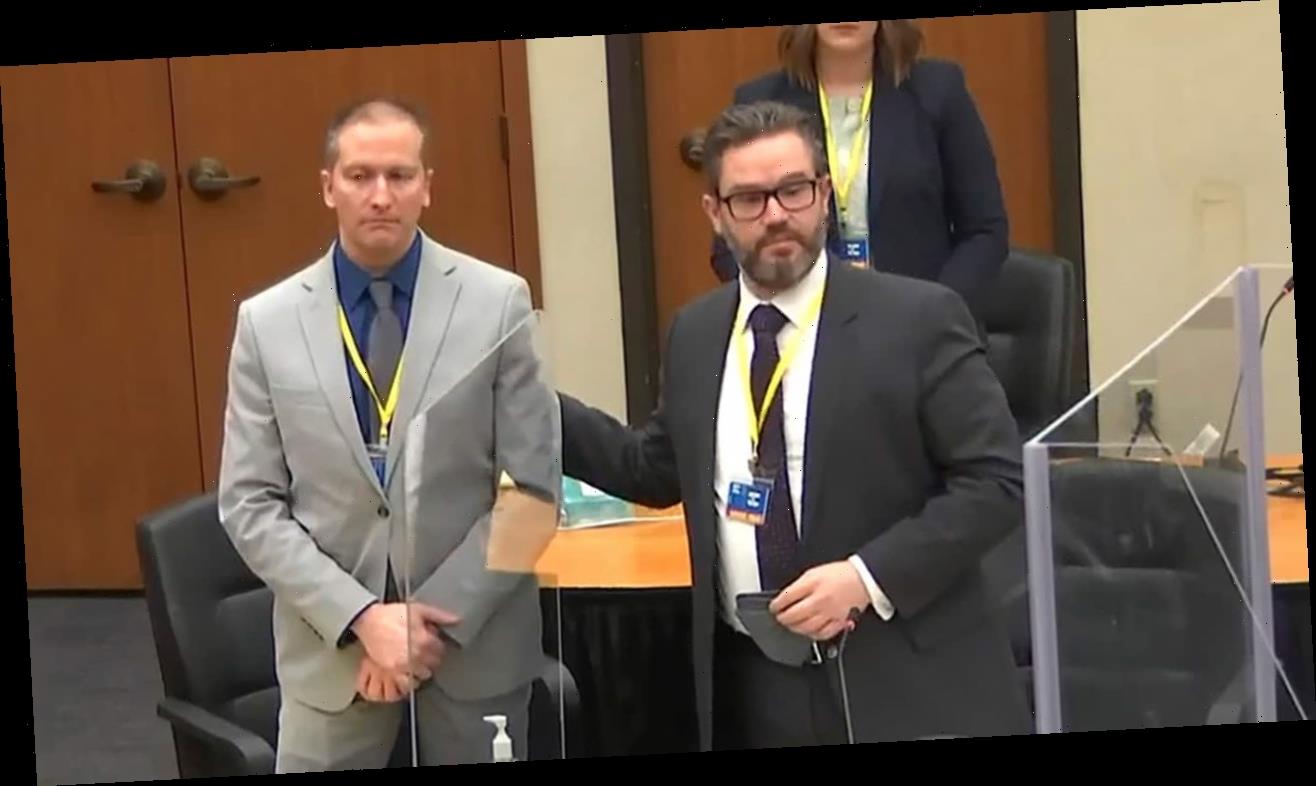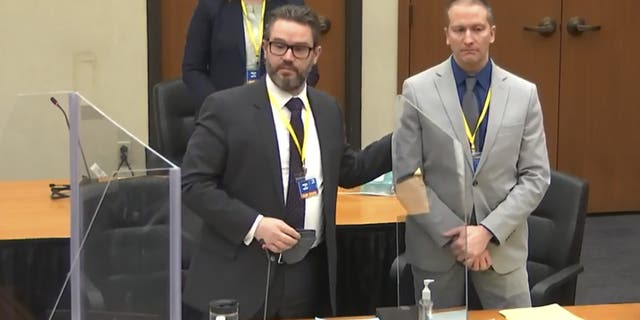Minneapolis Police Department chief to testify in Derek Chauvin trial
Former United States Attorney Harry Litman joins ‘Fox Report’ to discuss the trial against the former officer involved with the death of George Floyd.
The trial of Derek Chauvin, the former Minneapolis police officer charged in George Floyd’s death, is expected to pivot on Monday to his law enforcement training. The first week was dominated by testimony from prosecution witnesses including paramedics and police who treated Floyd as well as bystanders outside the store where Floyd was placed under arrest.
Chauvin, 45, is charged with second- and third-degree murder and manslaughter in the death of Floyd on May 25, 2020. Prosecutors argue Chauvin, who is White, killed Floyd by kneeling on the 46-year-old Black man’s neck for 9 minutes, 29 seconds as he lay face-down in handcuffs outside of a corner market.
DEREK CHAUVIN TRIAL: MINNEAPOLIS LIEUTENANT CALLS USE OF FORCE AGAINST FLOYD ‘TOTALLY UNNECESSARY’
The defense argues that Chauvin did what he was trained to do and that Floyd’s use of drugs during his arrest, as well as underlying health conditions and adrenaline, caused his death. An autopsy conducted by the Hennepin County Medical Examiner found fentanyl and methamphetamine in his system.
Minneapolis Police Chief Medaria Arradondo is expected to testify during the trial’s second week, perhaps as early as Monday. Arradondo, the city’s first Black police chief, fired Chauvin and three other officers the day after Floyd’s death, and in June called it “murder.”
“Mr. George Floyd’s tragic death was not due to a lack of training — the training was there,” Arradondo said at the time, according to The Associated Press. “Chauvin knew what he was doing.”
The city moved soon after Floyd’s death to ban police chokeholds and neck restraints. Arradondo and Mayor Jacob Frey have also made several policy changes, including expanding requirements for reporting use-of-force incidents and documenting their attempts to de-escalate situations even when force isn’t used.
DEREK CHAUVIN TRIAL: GEORGE FLOYD’S EX-GIRLFRIEND TESTIFIES ABOUT HIS DRUG USE, THEIR RELATIONSHIP
On Friday, when prosecutors called the head of the Minneapolis Police Department’s homicide division to the stand during the fifth day of the trial, Lt. Richard Zimmerman testified that he had never been trained to kneel on the neck of someone handcuffed behind their back, which he said was classified as being “top tier, deadly force.”
“Totally unnecessary,” Zimmerman, the longest-tenured officer on the force, testified Friday. He said once Floyd was handcuffed, he saw “no reason for why the officers felt they were in danger, if that’s what they felt, and that’s what they would have to feel to be able to use that kind of force.”
In this screenshot from video, defense attorney Eric Nelson, left, defendant and former Minneapolis police officer Derek Chauvin, right, and Nelson’s assistant Amy Voss, back, introduce themselves to jurors as Hennepin County Judge Peter Cahill presides over jury selection in the trial of Chauvin Wednesday, March 17, 2021. (Court TV, via AP, Pool)
Zimmerman, who joined the department in 1985, said he has never been trained to kneel on someone’s neck if their hands are cuffed behind their back and they are in the prone position. He said officers are supposed to get a person out of the position as soon as possible because it restricts their breathing.
During cross-examination, Chauvin’s defense attorney, Eric Nelson, questioned Zimmerman about his experiences with use of force and handcuffing for physically fighting with individuals.
CLICK HERE TO GET THE FOX NEWS APP
Zimmerman agreed with Nelson’s statement that it had been “a couple of years” since he was “in a physical fight with a person.” Nelson also posed questions about the threat a handcuffed suspect might still pose, as well as whether handcuffs might fail, and also suggested that bystanders shouting at police might have distracted them from Floyd and made them feel threatened.
Fox News’ Stephanie Pagones and The Associated Press contributed to this report.
Source: Read Full Article







